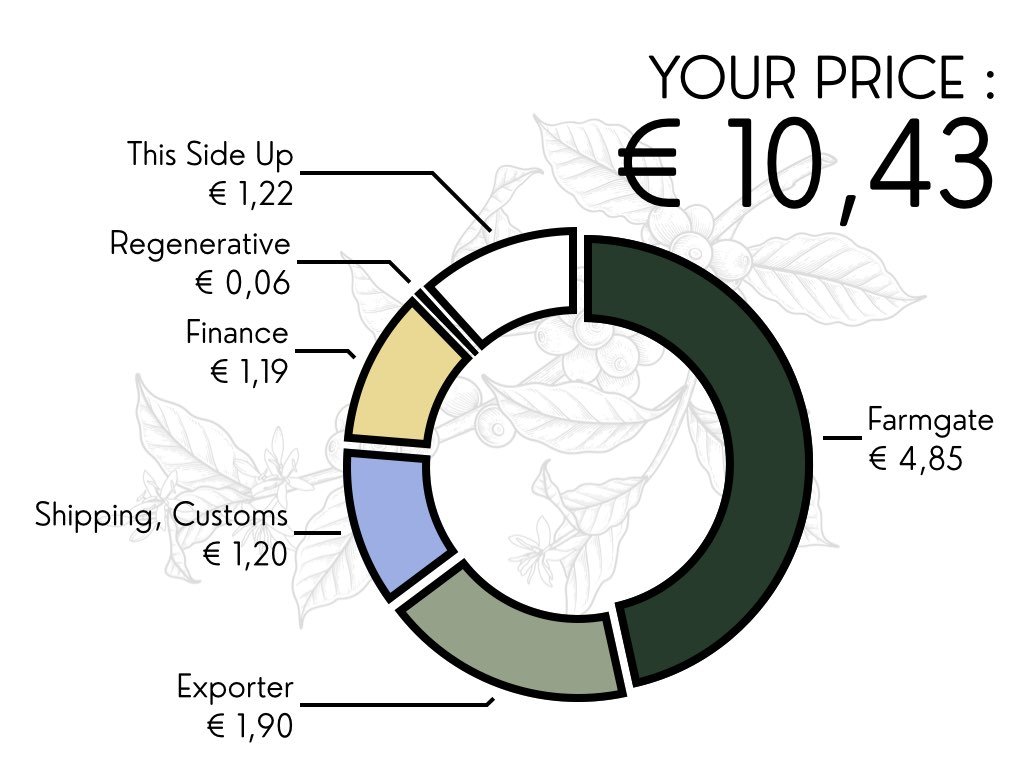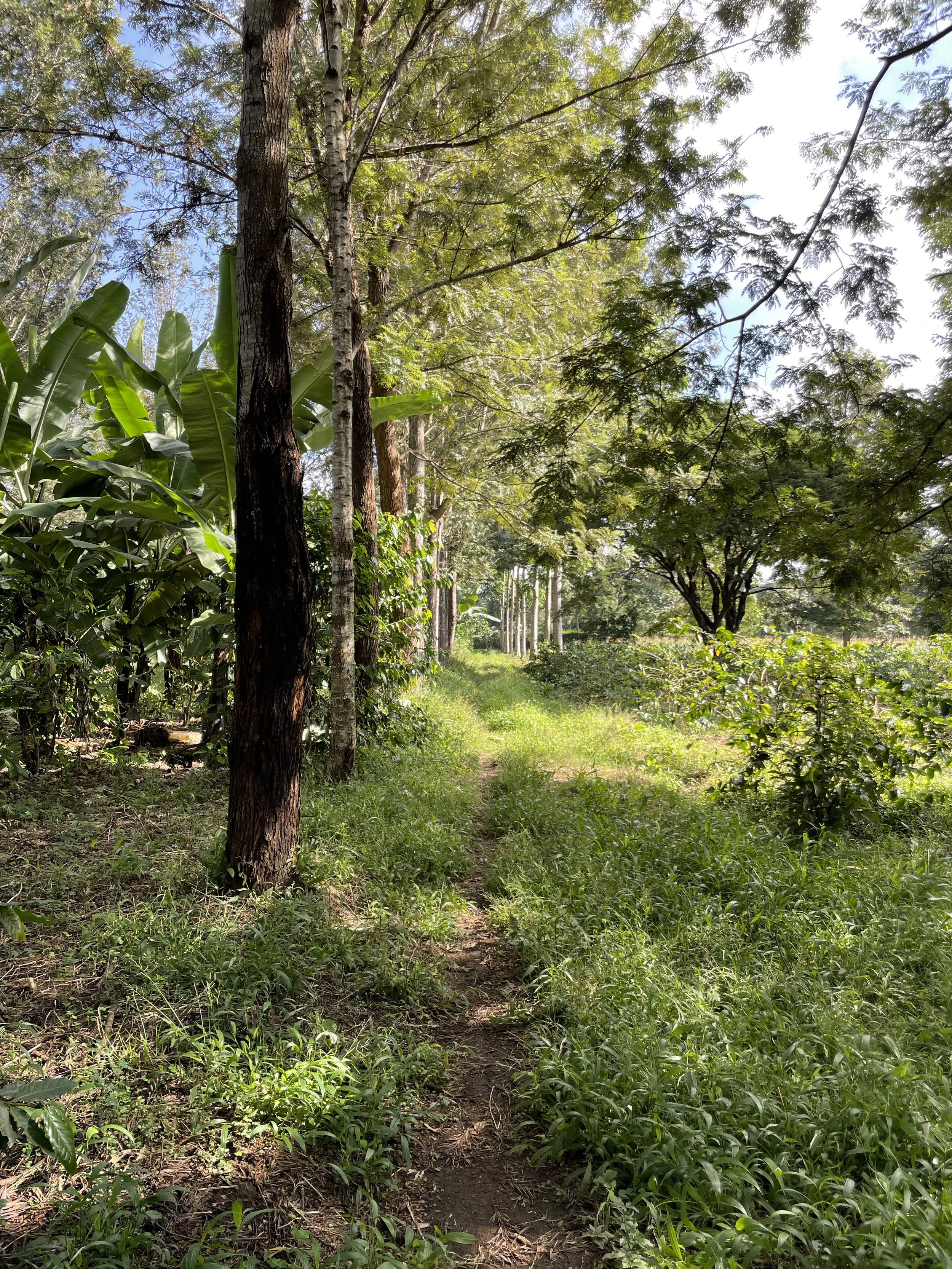coffee : a divine intervention
Frank met the Masista group through his friends as they needed help in selling their coffees. Masista is a congregation of 730 nuns from the Roman Catholic Church, benefit directly or indirectly from coffee.
They were neighbors with Aranga and had heard about their partnership with Wanza. Founded in 2021, this group was driven to foster knowledge sharing within the community. Their efforts towards producing high quality speciality coffee was met with the resistance to pay high prices locally. They also didn't know who bought their coffee which made this relationship even harder.
After their initial 'flirt' with Wanza they were able to actively see some changes. Not only were they getting good prices for their produce, they were also able to steadily increase production. Both being incentives to continue improving the over all quality. In the 300 acres of their property they have, around 12.5 is currently in the Tumaini property used for coffee. They also allow children to visit the farm and learn more about coffee production as part of the experience.They have invested in personnel from Tanzanian Coffee Research Institute to help them with agronomical decisions include production and processing.
Seeing the average age of their congregation is quite high, they are motivated to involve youth to play much more active role in coffee production. The future includes them working more on acquiring expertise in processing techniques as well as infrastructure to make the quality uniform as well as consistent.
CULTIVARS
Arabica Bourbon (Jackson, Mbirizi) and Kent
elevation
1,200 - 1,300 meters above sea level
NOTABLE
This is the first season they actually worked with their neighbors in Aranga to revise the production and processing protocols which seems very promising. They have decided to separate the lots and cup them separately in cooperation with Wanza so it can be organized easily based on quality of the cup. They also intercrop with banana, maize. They rear cattle for community use including milk, meat diversifying the source of their income. They do bee keeping and have a thriving fish pond that they use as source of food. This acts as a model farm for children to come learn more about agriculture. Currently have 2 permanent workers and during harvest season employ up to 40 workers.
PROCESSING
Ripe cherries are hand picked. Depulped using hand-pulper and then put into the washing channels, while the heavy beans are separated using the floating technique. After soaking for 24 or 48 hours depending on the weather in clean water, it is again washed and dried until desired moisture.
TASTIFY™ CUPPING NOTES
2025 HARVEST
Masista constituted 21% of the KiliMeru blend
Coffees from Masista constitute 21% of KiliMeru blend for 2025 portfolio
-
This year Masista is part of the KiliMeru blend and that is represented through the price breakdown p/kg. We agreed on this price directly with the farmers, disregarding the volatile US Coffee C price.
-
Here the farm gate is what the farmer gets for delivering the cherries to the Central Processing Unit owned by the group. This sum is inclusive of what the farmer and group gets for delivering parchment to Wanza, the exporter.
-
Wanza is responsible for a number of activities between the coffee at origin to Rotterdam. This fee per kg includes their salaries, farmer training and development fee, Business expenses that include travelling to visit the farmers, local taxes, dry milling, Warehousing, Sampling as well shipping to the nearest port for export
-
International shipping from Dar es Salaam to Rotterdam, Netherlands. It is inclusive of freight, customs, insurance and warehousing costs.
-
Average financing cost owed to (mostly social) lenders. This ensures immediate payment to the farmers when the coffee leaves the farm or port. It also includes storage, risk fee, storage and profit.
-
A standard TSU premium on all coffees designated exclusively to accelerate farmers’ own regenerative agriculture project
-
This Side Up compensation for spending time and resources importing this coffee. Our work includes year-round contact with producers, managing export, shipping, import, warehousing, grading, sampling, finding and keeping roasting partners for Masista/KiliMeru. € 1,22 is This Side Up’s Model 1 markup. For a full overview of our modular margin construction, see the Trade Models page.
It is worth noting that coffees have a different price since we are trying out different grades for the first time this season. And even though the farmers were paid the same farm gate for the all grades, in reality the differences can be taken from the TSU margin.
CONTACT WANZA
Wanza can be reached by email or by phone. Rebecca or Frank are also happy to have visitors to show around their coffee farms and host in their village, close to the city of Arusha and to numerous national parks
TEL +1 (615) 200 9209 / +255 713 838 181
EMAIL mlayff@gmail.com/ wanzacoffee@gmail.com
Photo gallery
You may use these images freely to promote Masista’s coffee amongst your customers.


















































